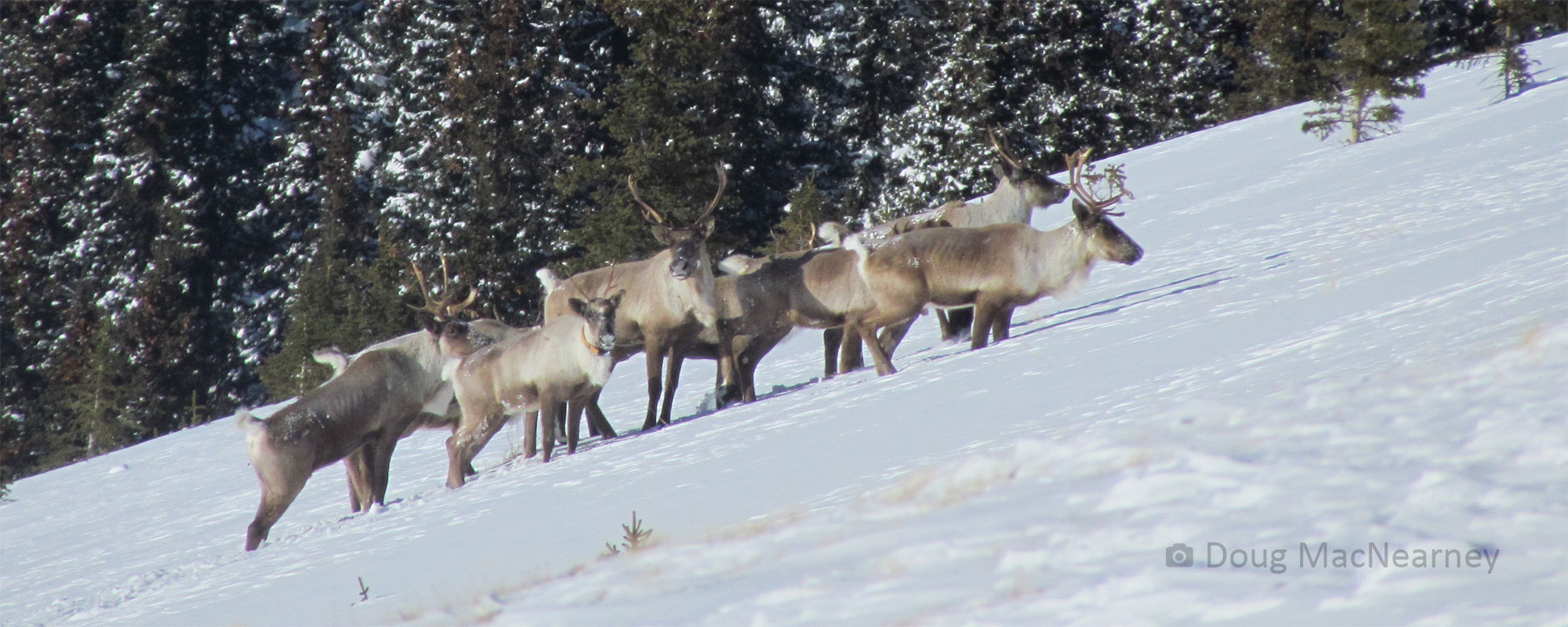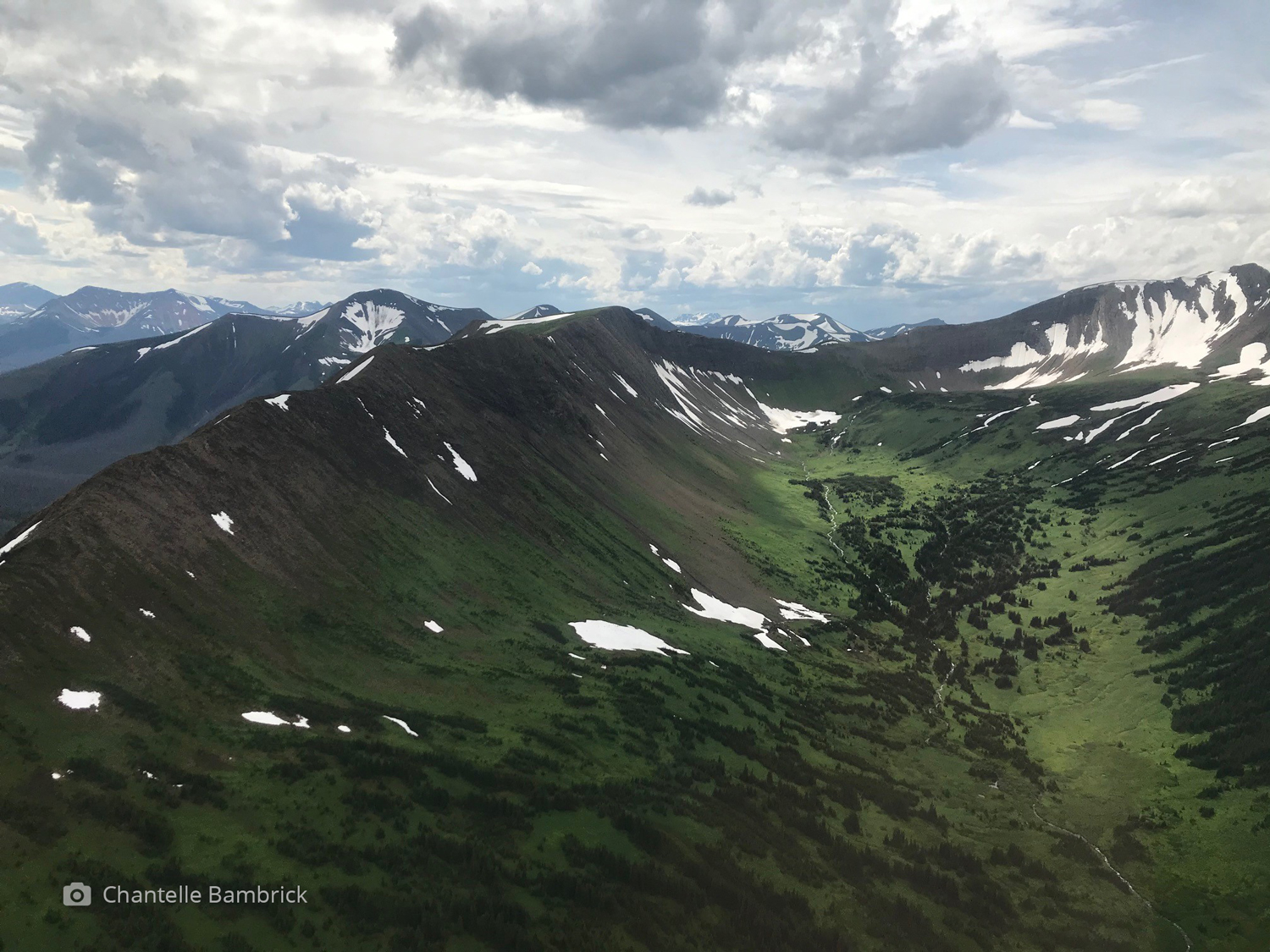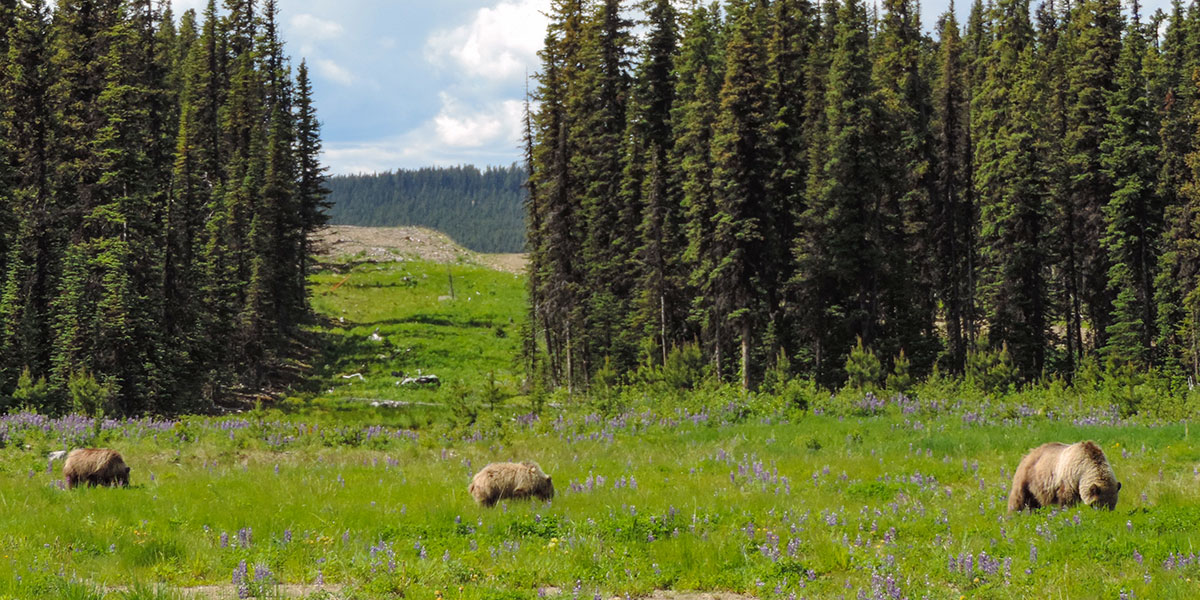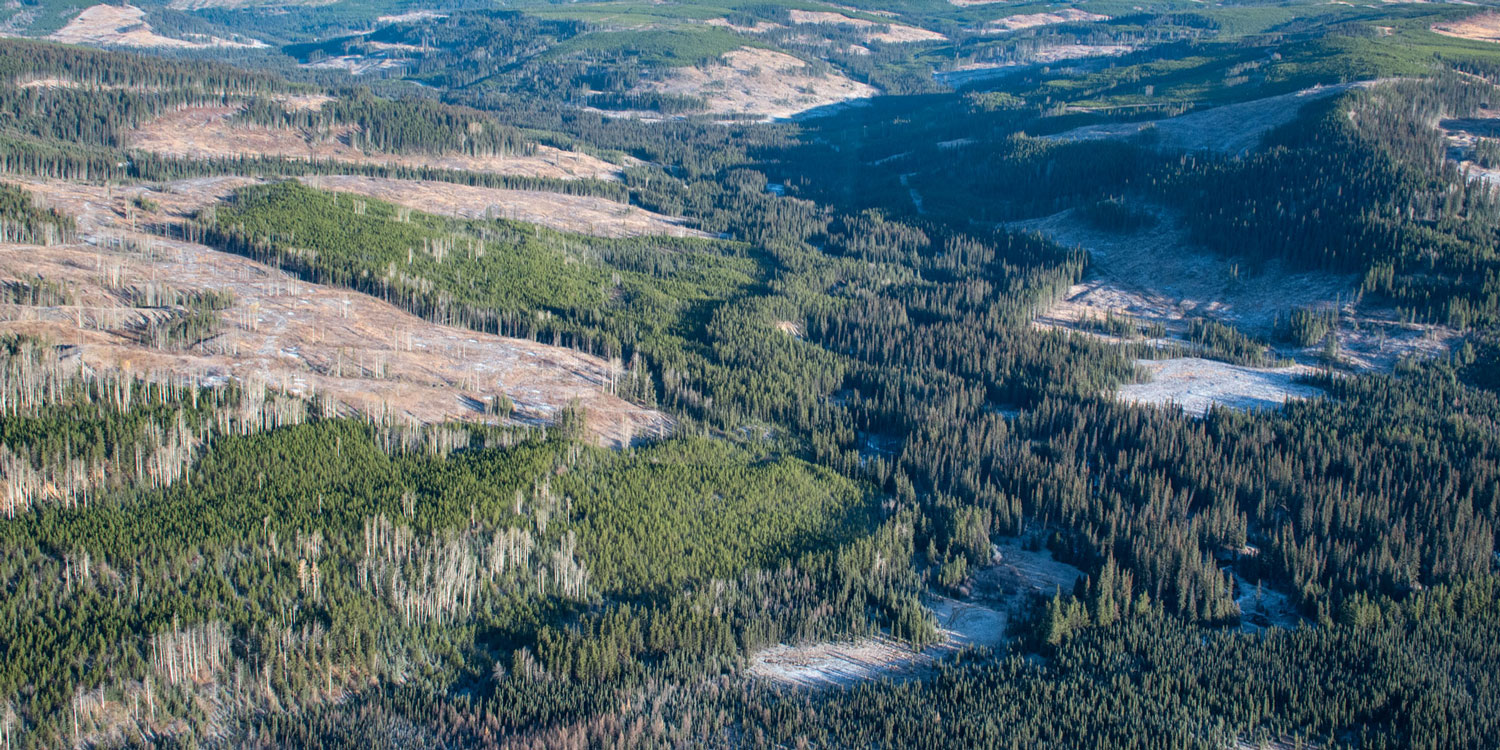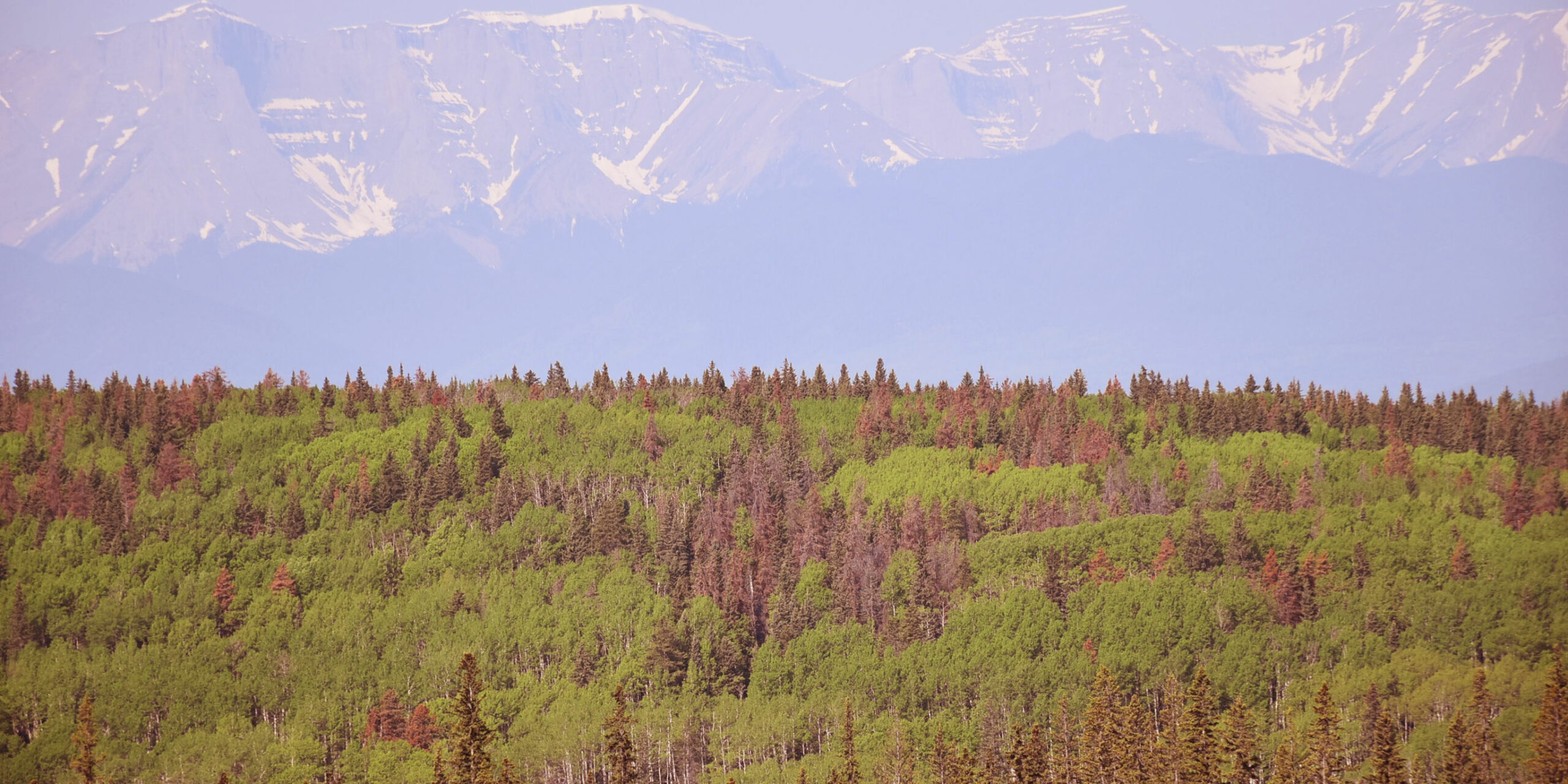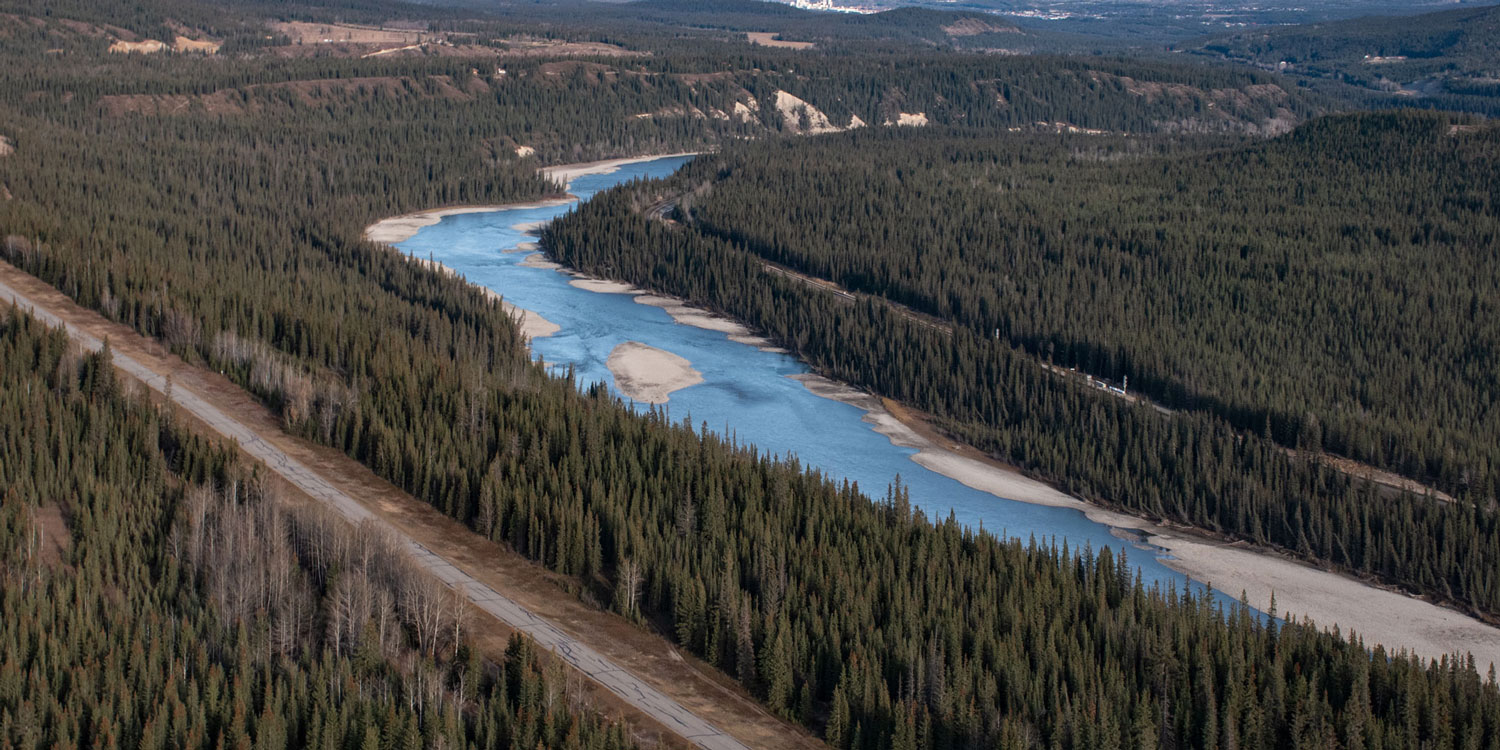
By Claire Kelly and Tommy O’Neill Sanger
Coming off the high of Shift 4 at the lovely Christina Lake, our crew of ten field technicians were feeling optimistic about heading north to stay at Crow Lake Provincial Park for our fifth shift of the 2022 field season. You would think that with a name like Crow Lake, this campground would be a beautiful place! After several hours of driving, the crew was pleased to arrive at a lovely, treed, quiet campground with large sites to accommodate all the trailers, just a few kilometers off the highway about an hour south of Fort McMurray. However, after walking down to Crow Lake itself, we realized that the water was closer to the color of a crow than to the color of a lake that anyone would want to dip their body into! So, after being spoiled with daily swims on our previous shift, we enjoyed the water from afar for shift 5, with a great view of the many pelicans and a couple moose who didn’t mind all the algae in the water.
This shift had many cutblock and fire sites, and many sites only accessible by quads. Despite the hot weather, we came home more days than not with wet boots. In fact, if we didn’t encounter water deeper than our knees, it was considered a great day. Navigating through dense forests to access sites can prove challenging, especially since hopping between hummocks of moss often results in falling into the questionably orange and smelly water that fills the depressions in between. Needless to say, many a toe was left soggy and wrinkled at the end of each day. Without a swimmable lake to cleanse ourselves in at the end of these hot, wet and muddy days, we had no choice but to trudge up the hill and take bird baths under the campground’s single, hand-powered water pump, which was actually quite refreshing!
There were, however, some dry sites consisting of sandy soil, jack pine trees, and abundant lichen—a staple in the diet of caribou. Several of these beautiful animals were spotted this shift, including one seen by the “crew dad”, Isaiah, on his birthday! This was obviously a good start to the day for him, despite the cloudy and smoky weather, and it only got better from there. Mother Nature was looking out for this birthday boy, and the sun finally came out in the afternoon, just in time for a water fight! The field techs ambushed Isaiah with an arsenal of water guns, and played a rousing game of Capture the Flag, water fight style. The celebration continued with a lovely family dinner and cake, of course. When asked to describe the day, Isaiah claims it was a, “non-stop thrill ride full of water and fury.”
This shift also marked the arrival of the crew’s first field visitor. The field techs were happy to welcome Dixie to camp for a few days, who was there to perform a safety audit of the crew. Dixie instantly got along with everyone, bonding over stories of fishing, gardening, and of course, the joys and struggles of working remotely in the field. She joined in on daily tailgate safety meetings where she appreciated the crew’s attention to detail regarding all the hazards seen in a day. We’ve all experienced more than our fair share of rough roads, insect bites, and the infamous “slips, trips, and falls” this season, but we make an effort each day to remind each other of these hazards, and to update each other on the mishaps of the previous day. Dixie even joined two field crews as they hiked to sites and completed the vegetation sampling protocol. She quickly learned that 200 meters of walking through squishy moss is much more difficult than expected! After two days with Dixie, the crew all appreciated her conversation-stimulating questions, her helpful suggestions to improve the health and safety program, and her eagerness to experience camp life with us.
As the shift was drawing to an end, the diligent field coordinators looked at the maps and realized that a large clump of the sites left to be completed could only be accessed by quadding 30 kilometers down a decommissioned bush road. Three brave field crews and their faithful steeds were sent to meet this challenge. The route involved dodging some deep mud pits and crawling right through others, but after three hours in the saddle the crews made it to the end of the road, where a high-intensity wildfire had scorched the earth and burned a large swath of jack pine forest. The long days and sore backs were made worth it by a sighting of three elusive hawk owls, interesting post-fire vegetation data, and an abundance of perfectly ripe blueberries to pick. We made these into a delicious pie, perfect for a treat on the last day in the field as a reward for another hard-working shift.
After a long, eventful shift, we returned to Hinton to recharge on our days off for Shift 6. Next on the list: Chinchaga!

